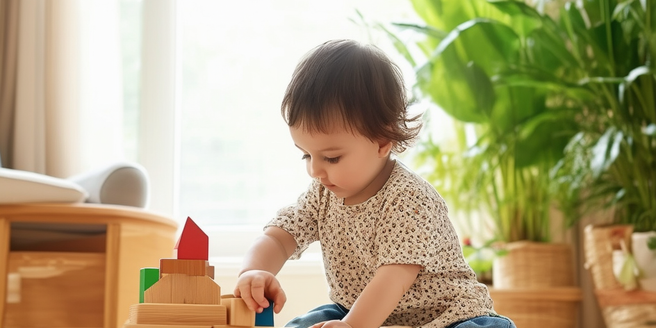
Understanding the Importance of Educational Toys
Educational toys play a crucial role in a child’s development. They are essential tools for stimulating cognitive growth and enhancing problem-solving skills. When children engage with educational toys, they are given the opportunity to explore and understand new concepts in a hands-on manner, which significantly aids in their intellectual development. Early interactions with these toys can build a strong foundation for future learning, preparing children for academic challenges.
Moreover, educational toys often encourage social skills through cooperative play. When children play together with these toys, they learn to share, take turns, and cooperate with their peers, which are important social skills that will benefit them throughout their lives. Additionally, these toys help build fine motor abilities through hands-on interactions, such as manipulating small parts and pieces, which is crucial for tasks such as writing and buttoning clothes.
Investing in quality educational toys can provide children with a rich learning experience that goes beyond mere entertainment. These toys can foster a love for exploration and discovery, making learning an enjoyable and continuous process. Parents and educators who choose well-designed educational toys are helping to cultivate curious, well-rounded individuals who are eager to learn about the world around them.
Age-Appropriate Toys for Different Developmental Stages
Selecting the right toys for a child’s developmental stage is key to maximizing their benefits. Infants benefit from sensory toys, which stimulate their senses and encourage exploration. Toys featuring bright colors, different textures, and gentle sounds captivate infants and promote cognitive growth. Toddlers thrive with toys that enhance motor skills and language development. For example, building blocks, simple puzzles, and interactive picture books help toddlers develop fine and gross motor skills while expanding their vocabulary and communication abilities. Preschoolers often enjoy more complex toys that encourage imagination and problem-solving. At this stage, children are drawn to toys like dress-up sets, building kits, and board games that require critical thinking and creativity. As children grow, their toys should evolve to challenge their new capabilities and support their continuous development. Educational toys that introduce basic math and science concepts, as well as those that promote teamwork and social skills, become valuable. Ensuring each stage is met with appropriate learning tools is essential for fostering a child’s overall development and helping them reach their full potential.
Key Features to Look for in Educational Toys
When choosing educational toys, it is crucial to look for those that are safe, durable, and engaging. Safety should always be a primary concern, ensuring that the toys are free from harmful materials and are designed to prevent injuries. Durability is important because well-constructed toys can withstand rough play and last longer, making them a better investment. Engaging toys capture a child’s interest and hold their attention, sparking curiosity and encouraging prolonged interaction.
Toys that encourage creativity and imagination allow children to explore and express themselves in unique ways, fostering cognitive growth and inventive thinking. Interactive features that stimulate cognitive, motor, and social skills are highly beneficial. For instance, puzzles and building sets can enhance problem-solving abilities and fine motor skills, while role-playing toys can boost social and emotional development by allowing children to simulate real-life situations.
In summary, when selecting educational toys, prioritize those that are safe, durable, and engaging, while also encouraging creativity and imagination. Choose toys with interactive features that promote cognitive, motor, and social skills and those that offer versatility in use. This approach will ensure that the toys provide lasting educational benefits and contribute positively to a child’s overall growth and development.
Balancing Fun and Learning in Toy Selection
The best educational toys strike a balance between fun and learning. It’s crucial that toys are not just educational but also engaging and enjoyable, ensuring that children are motivated to play with them repeatedly. If a toy is overly entertaining without any educational value, it may fall short in helping children develop essential skills.
Toys that integrate learning activities seamlessly into playtime help children develop skills without feeling pressured. For instance, building blocks that teach basic math concepts or word games that expand vocabulary can provide a meaningful blend of fun and education.
Finding that sweet spot where education and enjoyment meet can make a significant difference in a child’s enthusiasm for learning. When children perceive learning as an enjoyable experience, they are more likely to seek it out, thus fostering a lifelong love of knowledge. Parents and educators should look for toys that captivate children’s attention while subtly teaching them valuable lessons. By doing so, they can support children’s growth and curiosity, making learning a delightful part of everyday play.
Tips for Integrating Educational Toys into Daily Play
To maximize the benefits of educational toys, integrate them into daily routines. Create specific playtimes focused on these toys, and involve caregivers in the play to guide learning. Rotate the toys to maintain interest and discover new ways to use them. Additionally, consider incorporating themes or objectives to make play more enriching. Include activities that promote physical movement to support overall development. Encouraging children to use these toys in imaginative ways can also enhance their creativity. Engage in conversations about what the children are learning during playtime to reinforce educational concepts. Make the play environment conducive to learning by ensuring it is free from distractions and well-organized. Celebrating small achievements during play can further motivate children to engage and explore.
